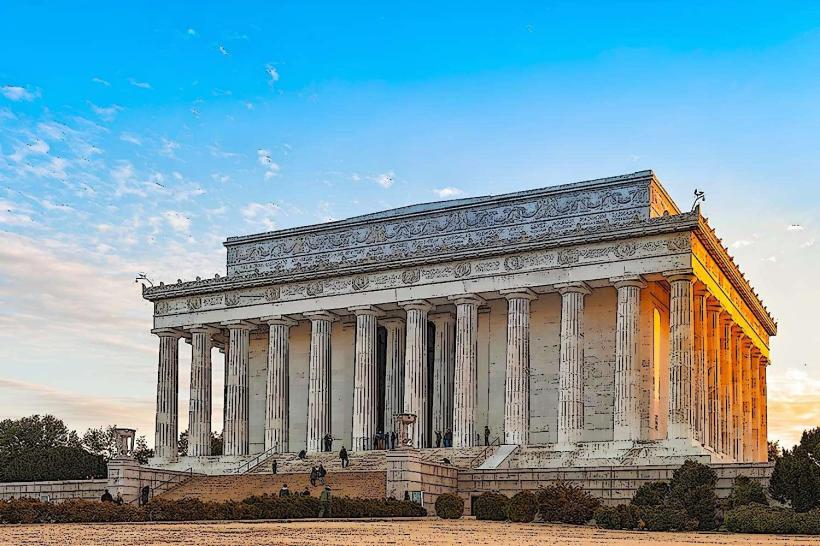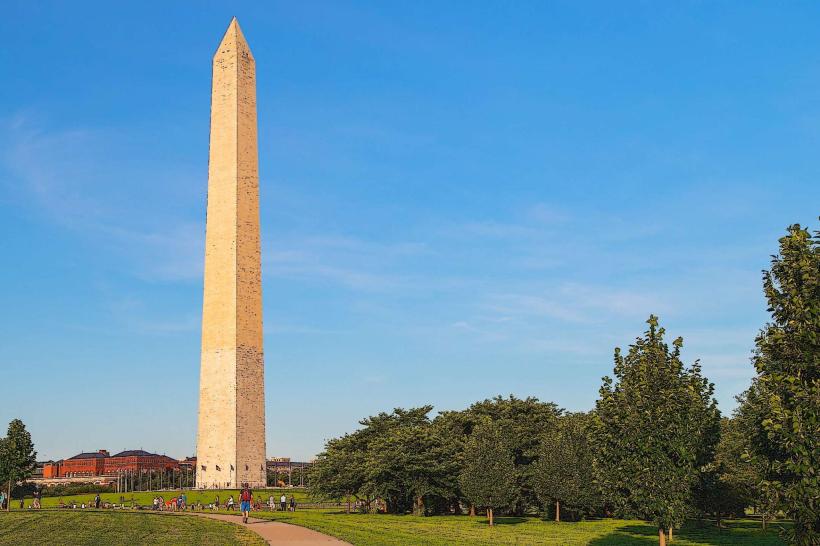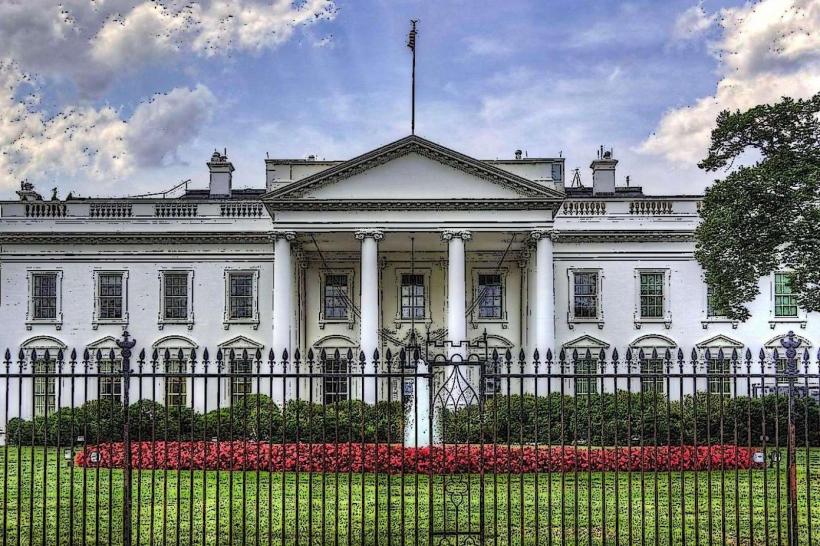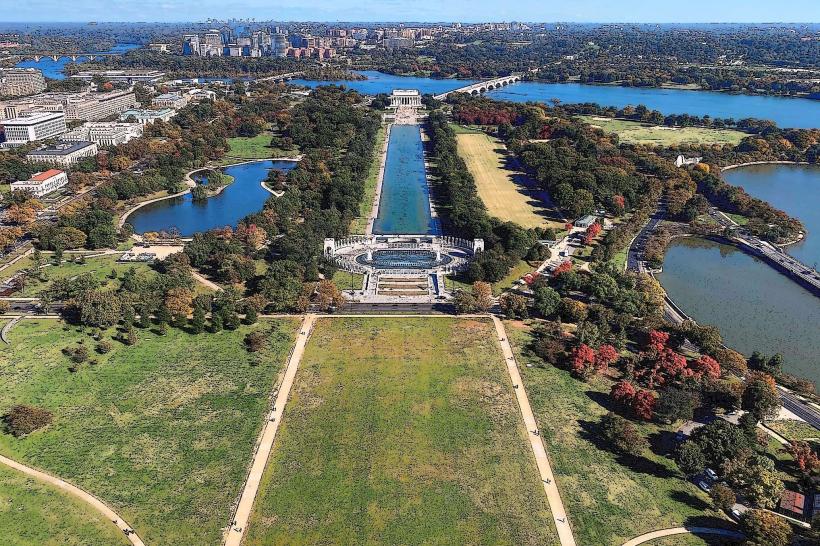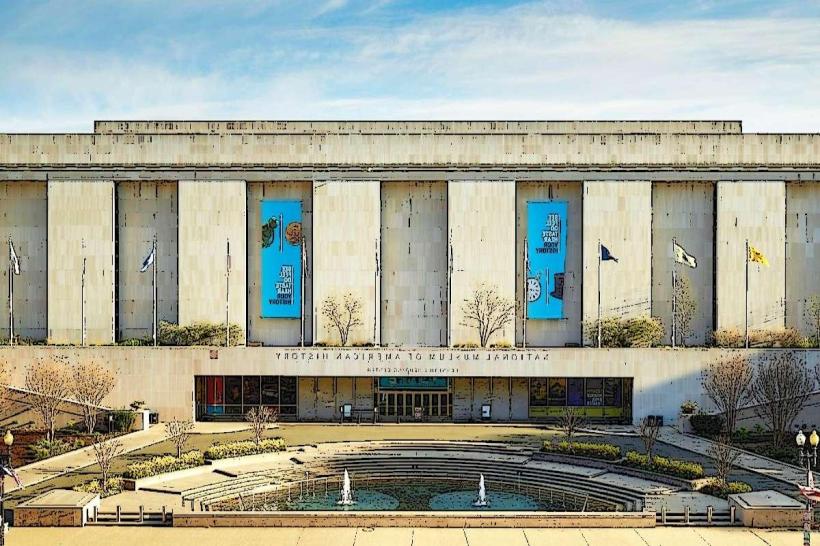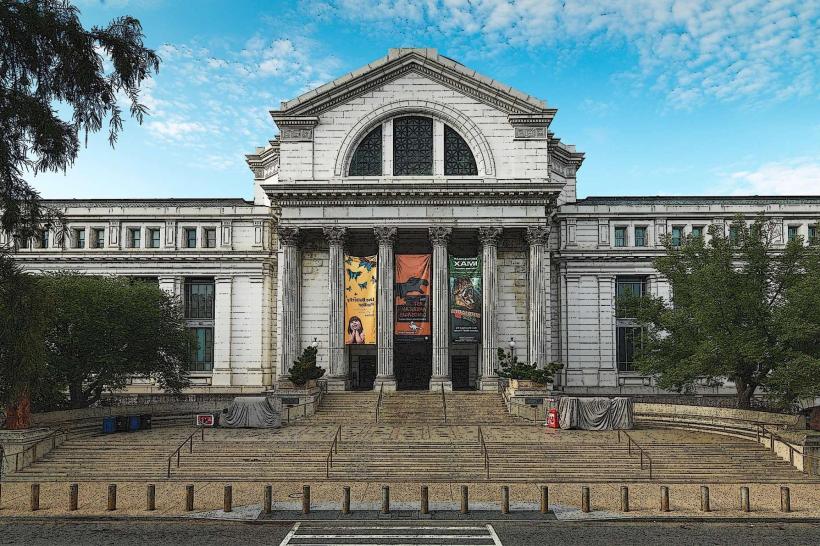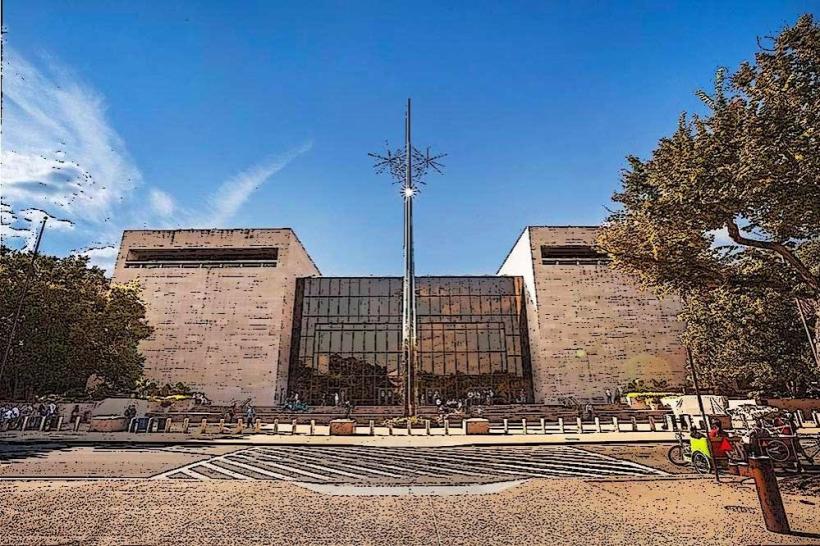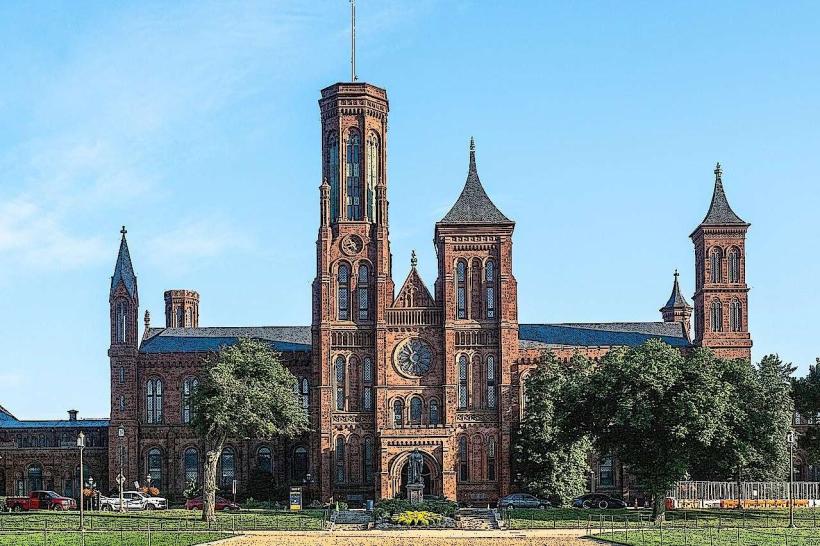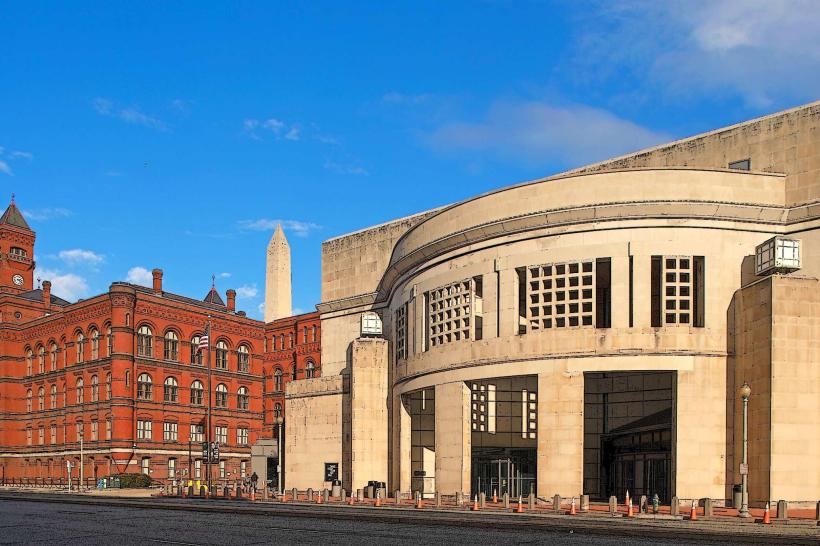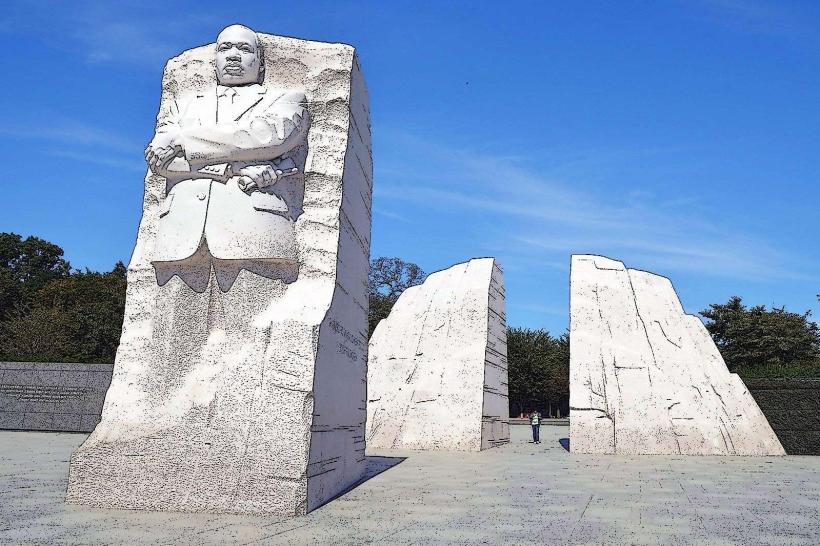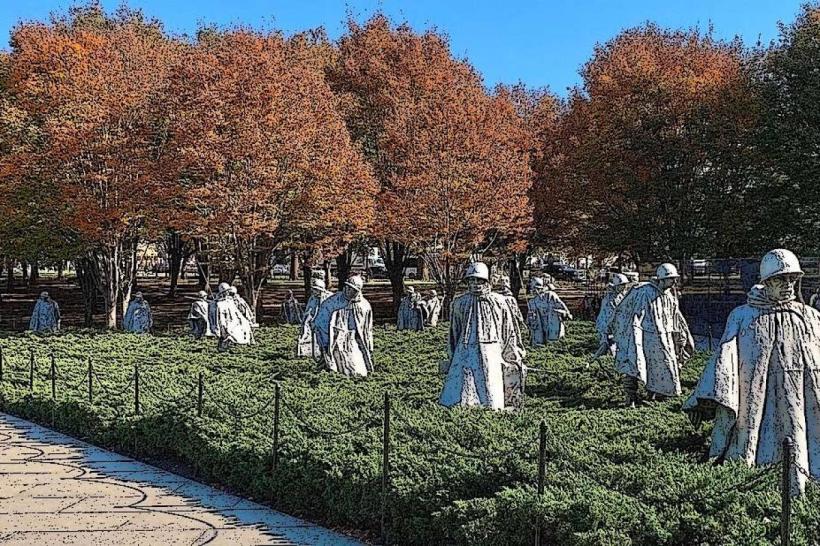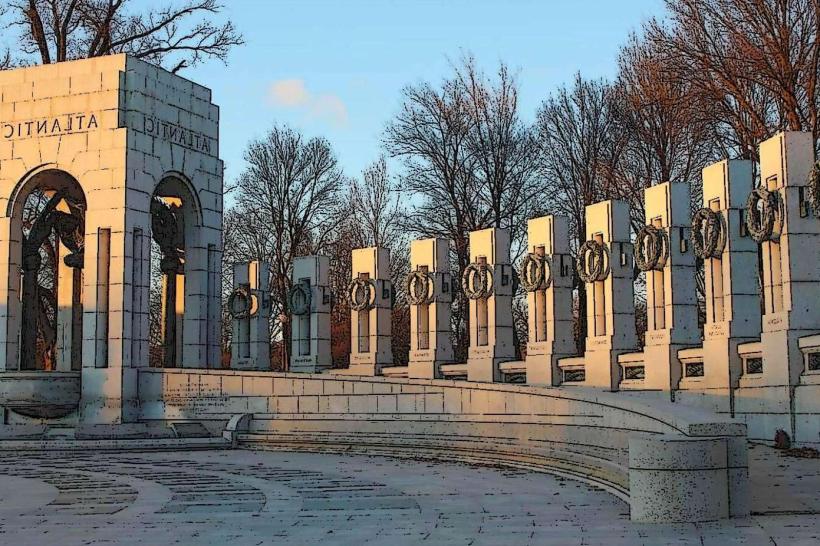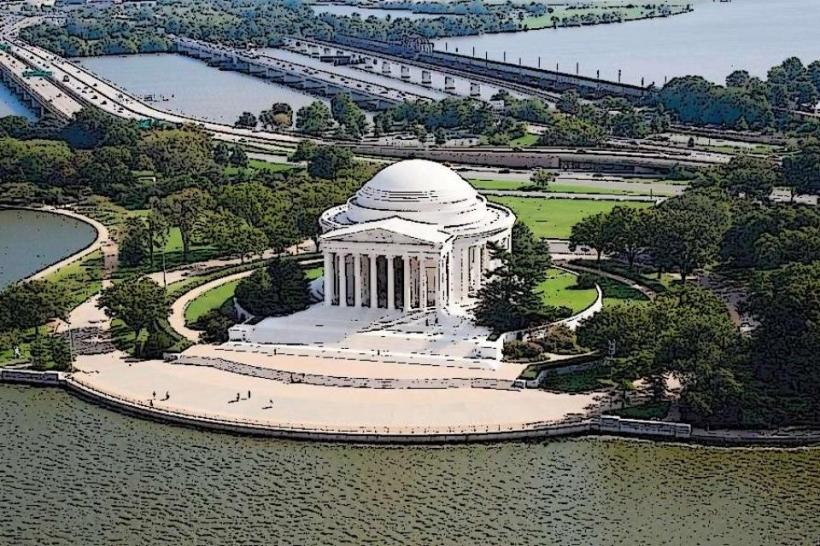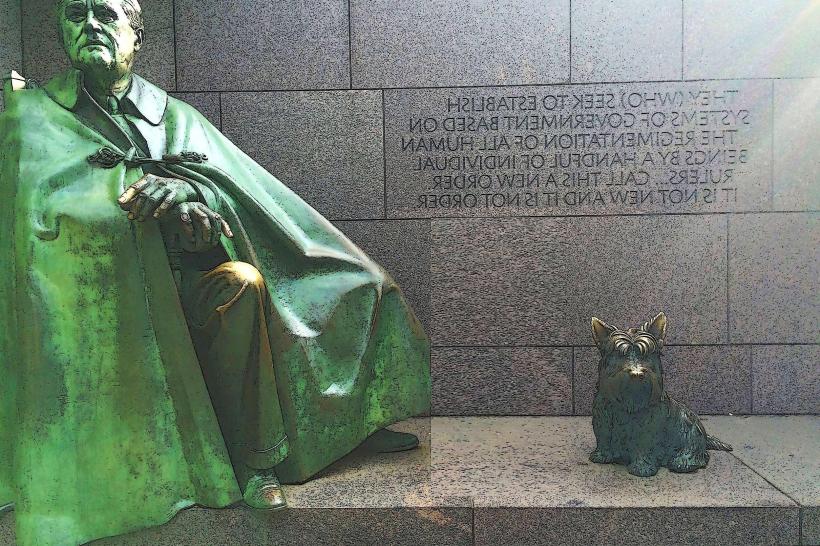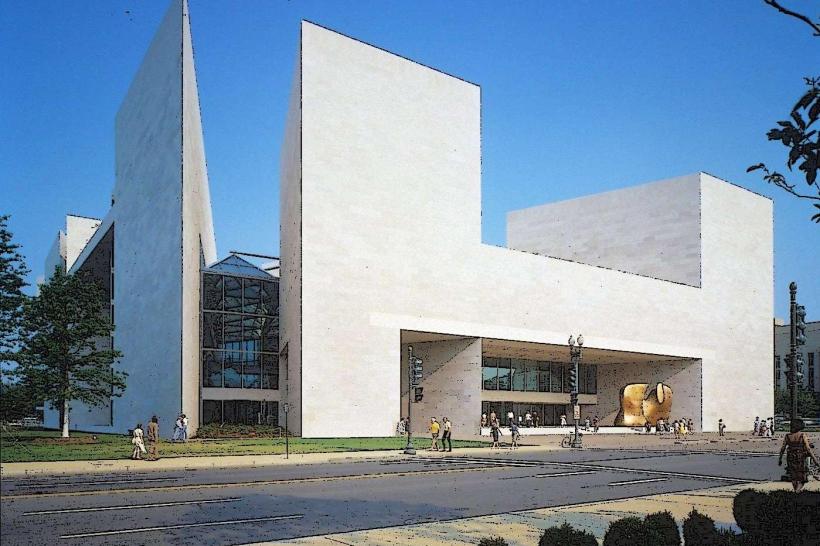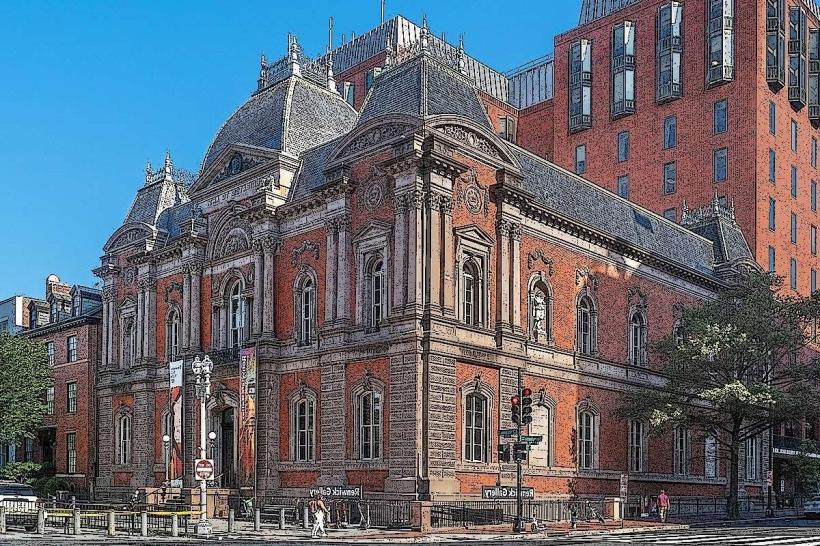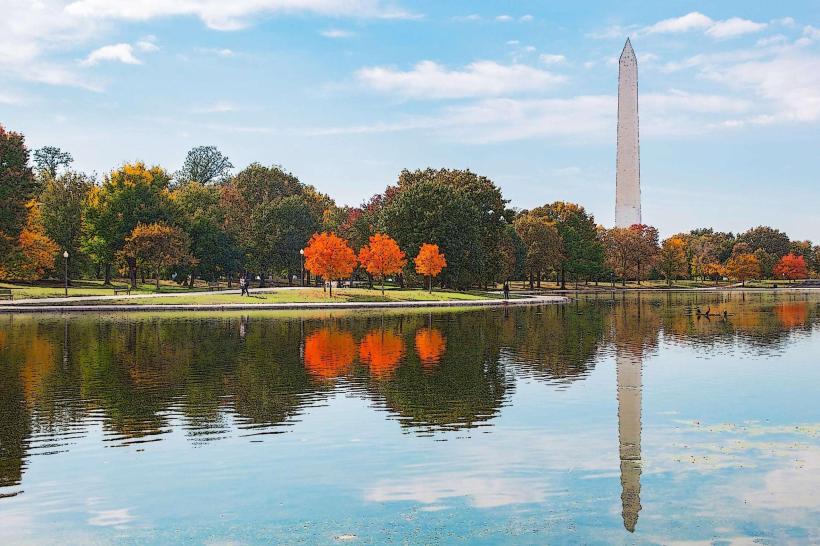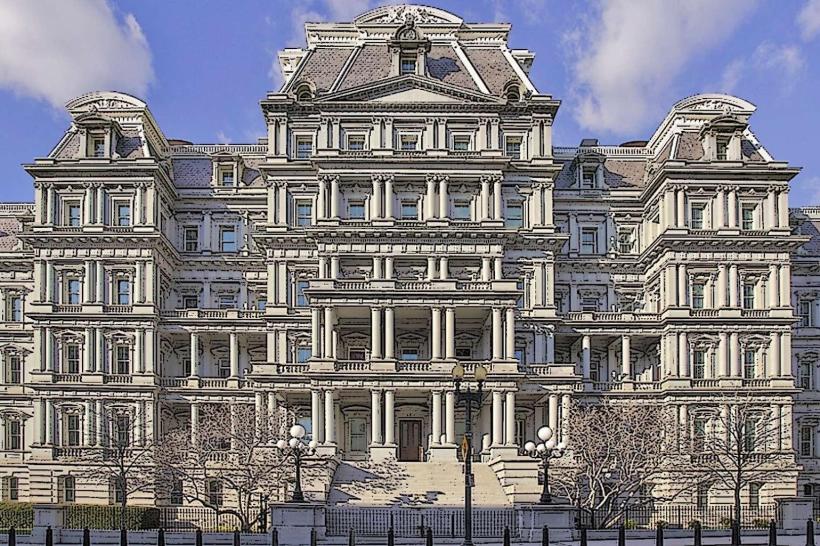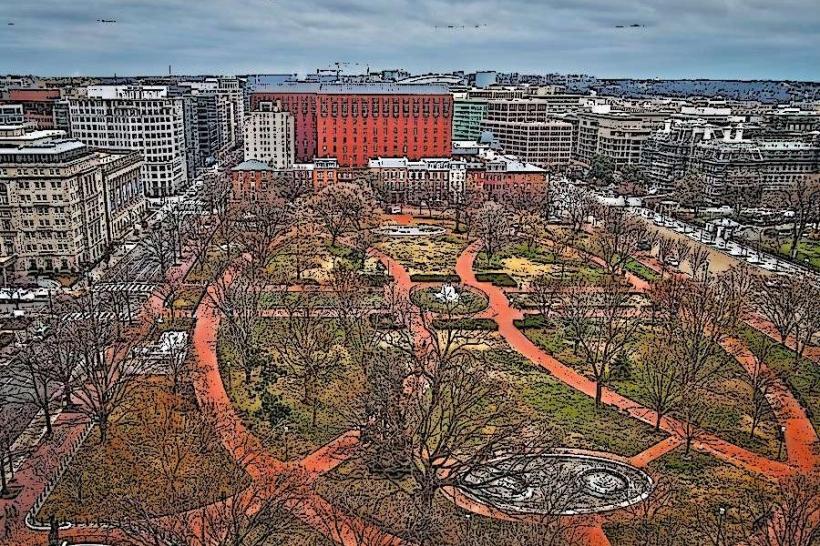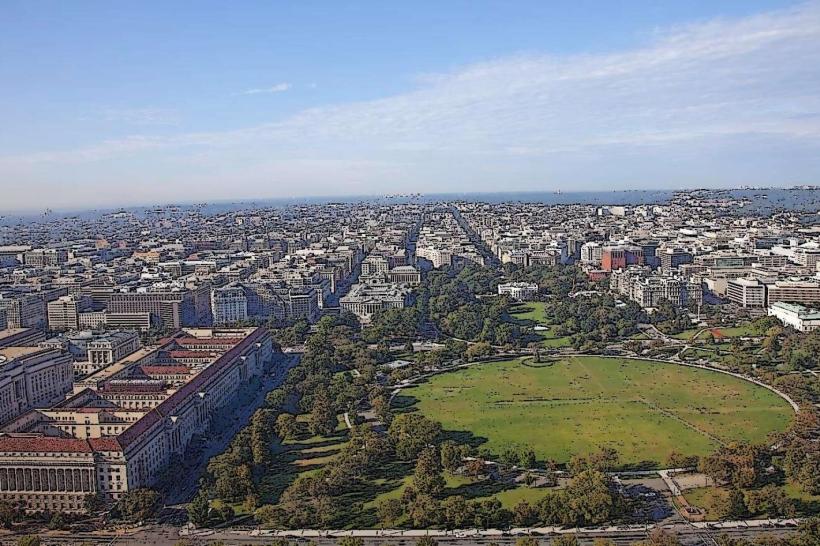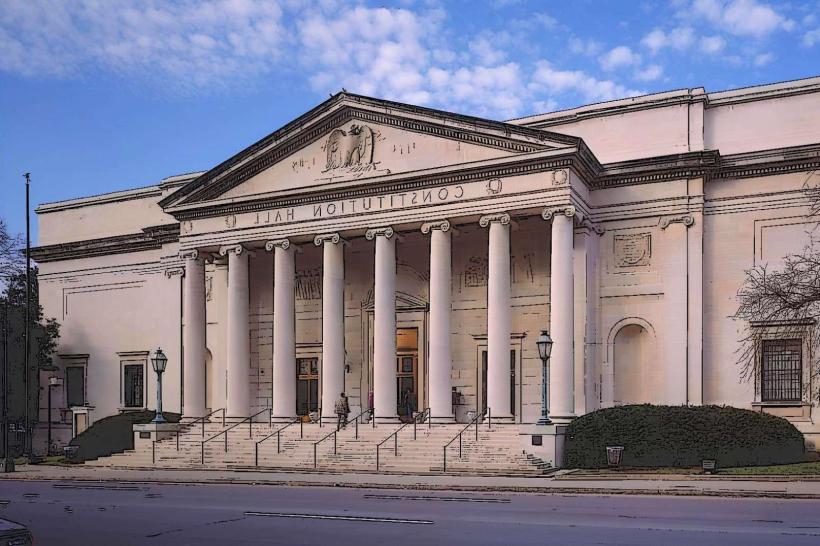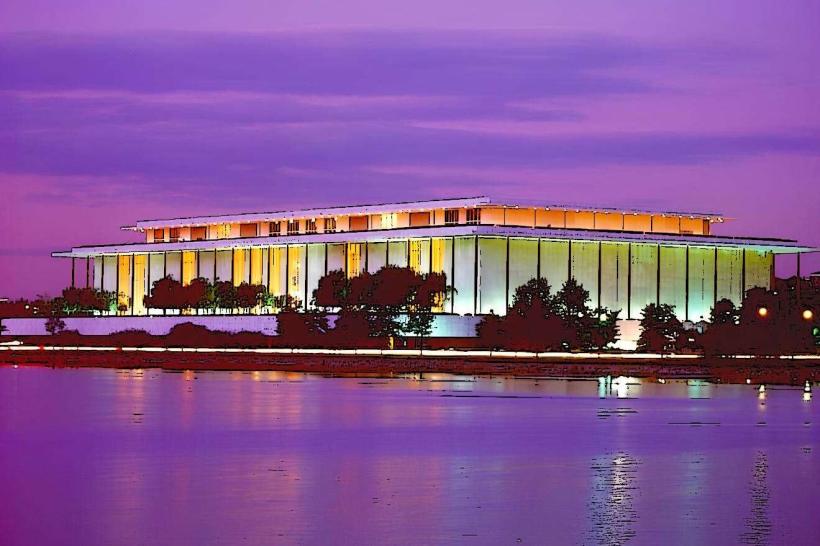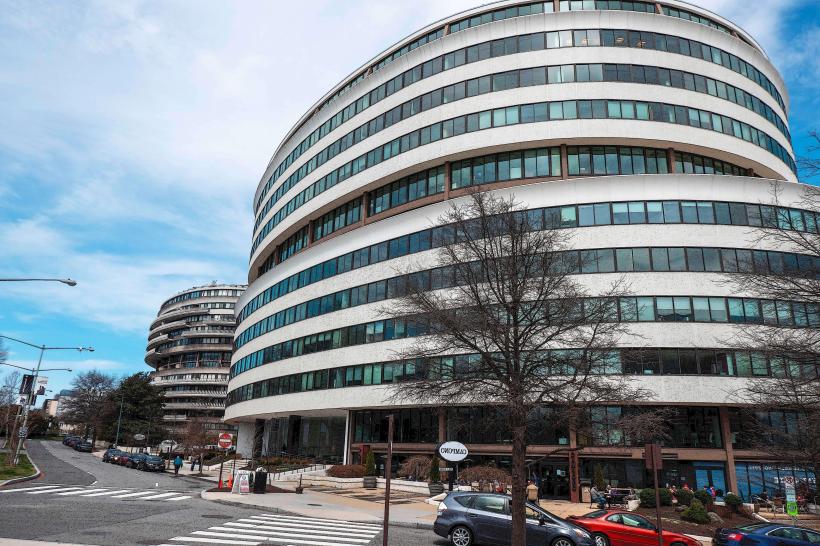Information
Landmark: Tidal BasinCity: Northwest Washington
Country: USA Washington DC
Continent: North America
Tidal Basin, Northwest Washington, USA Washington DC, North America
The Tidal Basin in Washington, D.C., is one of the city's most iconic and picturesque landmarks-a man-made inlet adjacent to the Potomac River that combines natural beauty, historic significance, and architectural grandeur. It serves as a focal point for some of the capital’s most important memorials and is especially renowned for the spectacular display of cherry blossoms that ring its shores each spring.
Location and Geography
The Tidal Basin lies in the Southwest quadrant of Washington, D.C., bounded by:
The Jefferson Memorial to the south,
The Martin Luther King Jr. Memorial to the northwest,
The Franklin Delano Roosevelt Memorial along its western shoreline, and
The Washington Monument visible to the north.
Spanning approximately 107 acres, the basin connects to the Potomac River via inlet and outlet gates and is encircled by a 2.1-mile paved path, popular with walkers, joggers, and cyclists.
Origin and Function
Constructed in the late 19th century and completed in 1897, the Tidal Basin was created as part of a large-scale engineering project to manage flooding and improve sanitation in Washington, D.C. The city’s early development suffered from foul-smelling, stagnant water and poor drainage around the low-lying areas of the Potomac shoreline.
The solution was to create a regulated basin that could flush out the Washington Channel twice daily. Here’s how it works:
Water enters through inlet gates from the Potomac River at high tide.
As the tide recedes, outlet gates release the water, creating a flushing effect that cleanses the channel of silt and debris.
Though this functional use has become secondary, the basin remains a central part of the National Mall’s landscape and a model of landscape architecture blending utility and beauty.
Cultural and Historical Importance
The Tidal Basin is not only a body of water but also a living monument surrounded by memorials dedicated to American leaders and movements that shaped the nation. These include:
1. Thomas Jefferson Memorial
Situated directly on the southern edge of the basin.
A classical rotunda inspired by the Roman Pantheon, housing a bronze statue of Jefferson.
Symbolizes liberty, democracy, and the Enlightenment principles on which the U.S. was founded.
2. Martin Luther King Jr. Memorial
Located on the northwest shore.
Features a towering 30-foot statue of Dr. King carved from granite, emerging from the “Stone of Hope.”
The memorial includes inscriptions of his speeches and ideals, reflecting his fight for equality and civil rights.
3. Franklin Delano Roosevelt Memorial
Spanning 7.5 acres along the western edge of the basin.
Divided into four “rooms,” representing FDR’s four presidential terms.
Features waterfalls, statues, and engravings emphasizing leadership, perseverance, and compassion during the Great Depression and World War II.
These three memorials encircling the Tidal Basin create a philosophical and historical dialogue among foundational values: liberty, justice, leadership, and civil rights.
Cherry Blossoms and the National Festival
The Tidal Basin is internationally celebrated for the National Cherry Blossom Festival, held each spring since 1935, commemorating the 1912 gift of over 3,000 cherry trees from Mayor Yukio Ozaki of Tokyo to the United States.
Key details:
The Yoshino and Kwanzan cherry trees bloom around late March to early April.
Peak bloom typically lasts only a few days but draws over a million visitors annually.
The basin’s perimeter becomes a dreamlike canopy of delicate pink and white blossoms, symbolizing renewal, friendship, and the fleeting nature of beauty and life.
The Japanese Lantern (gifted in 1954) and Japanese Pagoda along the path underscore the celebration of U.S.–Japan friendship.
This seasonal transformation turns the Tidal Basin into one of the most photographed locations in the country and a place of shared public joy.
Visitor Experience
The Tidal Basin is accessible year-round, offering a variety of experiences depending on the season:
Spring: Cherry blossoms and festival activities, drawing large crowds. Early morning visits provide serenity.
Summer: Lush greenery, paddle boat rentals (typically available April–October), and clear sunset views over the memorials.
Autumn: Crisp air, fall foliage, and thinner crowds make for reflective strolls.
Winter: Quiet and stark beauty, with snow occasionally dusting the monuments.
Amenities:
Benches and shaded areas are scattered along the path.
Interpretive signs offer historical context.
The walk is ADA-accessible, though parts can become flooded during high tide or heavy rains.
Environmental Concerns and Preservation
In recent years, the Tidal Basin has faced significant challenges from climate change and aging infrastructure:
Frequent flooding of pathways due to rising sea levels and tidal surges.
Erosion of cherry tree roots and soil along the waterline.
Calls for large-scale restoration have led to the Tidal Basin Ideas Lab, a collaborative initiative to reimagine and preserve the site for future generations while respecting its historical integrity.
Conclusion
The Tidal Basin is more than a scenic waterfront-it's a dynamic symbol of America's heritage, memory, and resilience. With its fusion of natural beauty, monumental history, and seasonal transformation, it offers a space where past and present converge. Visitors walk its path not only for the views but also to connect with the ideals and individuals who shaped the nation. As much as it reflects the water and sky, the Tidal Basin reflects the values, struggles, and hopes that define the American experience.

